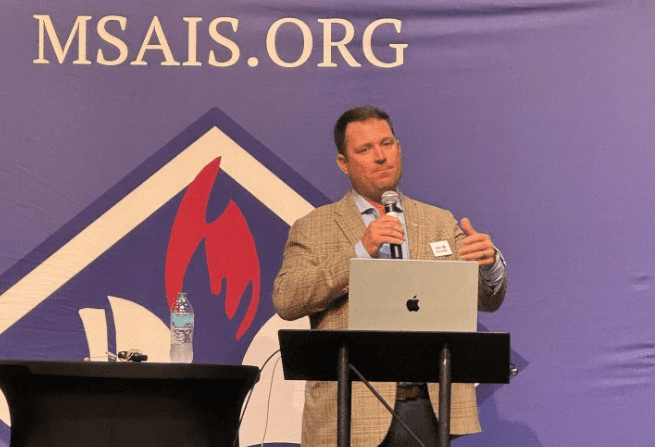
Sid Salter
- Columnist Sid Salter writes that the process of appropriating congressional disaster relief funds has never been the same since Mississippi played hardball in 2005 over Katrina.
Mississippi has a history of natural disasters, including hurricanes, tornadoes, floods, droughts, and, on rarer occasions, ice and snowstorms. From the New Madrid seismic zone, scientists say there is a 10% chance of an earthquake being felt in the state in the next half-century.
As a matter of record, a WalletHub.com report relying on Census and National Centers for Environmental Information ranked Mississippi first among states most impacted by natural disasters from 1980-2023. That same report ranked Mississippi 10th for the most climate disasters causing $1 billion in damage—tied for first with four other states.
Mississippi has been at least part of the scene of some of the greatest natural disasters in U.S. history – the Great Flood of 1927, Hurricanes Katrina in 2005, Camille in 1969 and Cheniere Caminada in 1893, and two of the worst tornadoes in U.S. history in Natchez in 1840 and Tupelo in 1936.
With documented evidence, much has been made of the amazing resilience of Mississippi survivors of natural disasters. From the movement of refugees from the flood waters of the Mississippi River and Yazoo River basins in 1937 to Tupelo’s recovery and rebuilding after a major tornado during the Depression to Mississippians helping themselves and others after Hurricane Katrina.
I thought of that often grim yet inspiring legacy in our state as I reviewed stories of federal disaster relief and recovery funding grinding to a standstill during the recent presidential election. Republicans on Capitol Hill accused the Biden Administration of squandering Federal Emergency Management Agency funds intended for victims of Hurricanes Helene and Milton on housing for illegal migrant workers – as had been suggested during the campaign by now President-elect Donald Trump.
FEMA and the White House categorically denied the allegations, calling them “frankly ridiculous and just plain false.” However, the partisan debate slowed the provision of assistance to storm victims from Florida, Georgia, Virginia, Tennessee and North Carolina. While the Senate seems to have reached a consensus, the House negotiations have stalled amid GOP calls to “pare down” appropriations for items they believe are outside the scope of true disaster relief.
Amid the scene playing out over the Helene-Milton appropriations from Congress, it is impossible not to reflect on a similar December scene on Capitol Hill in 2005. Congress was wrestling with reaching a consensus on a bill to provide relief to victims of Hurricane Katrina in Mississippi and Louisiana. With Republican President George W. Bush in the White House and the GOP in charge of both houses of Congress, there was then as now strong House (and some Senate) GOP opposition to funding a Katrina relief package as robust as was being sought by then-Mississippi Gov. Haley Barbour and then-U.S. Sen. Thad Cochran, the Republican chairman of the Senate Appropriations Committee.
Cochran finally balked at additional negotiations. After putting decades of goodwill and personal relationships on the line without success, Cochran notified the leading appropriators working on a holiday deadline that nothing – including the vital defense appropriations bill – would advance through the committee until the Katrina appropriations reached an acceptable compromise.
The result was that Cochran obtained $29 billion in Katrina relief for Gulf Coast states impacted by Katrina, including exclusively for Mississippi an unprecedented $5 billion in discretionary Community Development Block Grant money. That provision allowed the state to provide homeowner grants for rebuilding. It saved the Mississippi Gulf Coast.
After Cochran and Barbour achieved that “Mississippi Miracle” in focusing Congress on disaster relief (against opposition from “Up East” states), Superstorm Sandy struck New York and New Jersey in 2012. Their leaders seeking relief funds from Congress encountered a new level of opposition from House GOP conservatives and several advocacy groups who argued that the Sandy relief appropriations were “laden with pork.”
The process of appropriating congressional disaster relief funds has never been the same since Mississippi played hardball in 2005 over Katrina. The current obstacles to getting the Helene and Milton packages passed trace directly to the 2024 presidential election and old scores that some are still trying to settle in Congress since 2005.
As representatives of Mississippi on Capitol Hill who will likely need disaster relief again soon enough, Mississippi’s congressional delegation would do well to recall that history.








